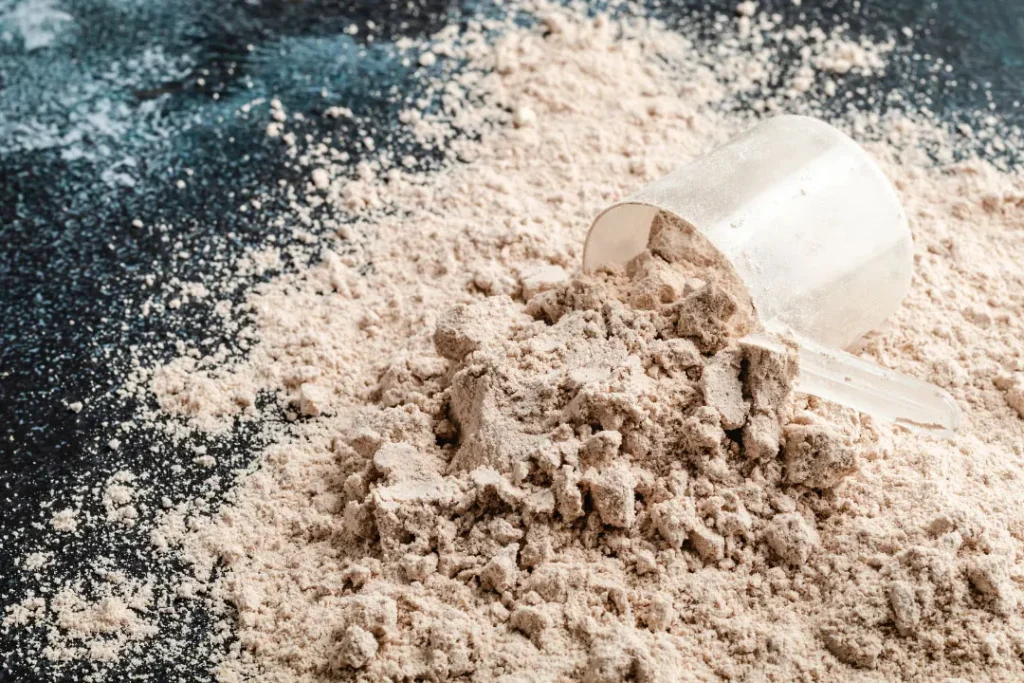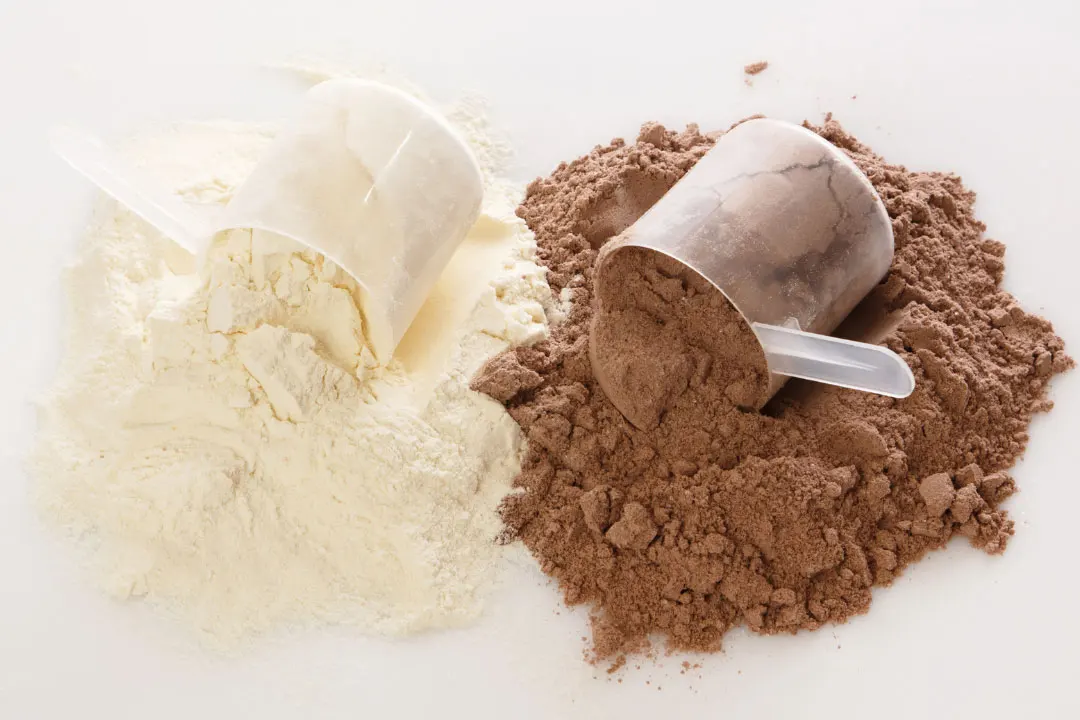The right protein powder can help you reach your fitness or weight loss goals, and the market presents a range of reasonably priced options. We’ll compare two leading brands: Ryse protein powder and Nuzest’s Clean Lean Protein, so that you can make an informed purchase decision.
You May Also Like:
Om Mushroom Reviews vs Troop Mushrooms Reviews
From The Stone Age To Our Own Age: The Paleo Diet (Including Supplements) Promotes Natural Nutrition
The power of protein
Protein is paramount – not just for athletes but for everyone looking for a balanced diet. Your immune system, heart, brain, and skin rely on protein to function properly. Unfortunately, getting enough protein in your daily diet (approximately 55 grams a day) isn’t always easy, especially for those with allergies or adverse reactions to meat and dairy products. That’s where supplements like Ryse protein powder and Nuzest’s Clean Lean Protein come into play. In this article, we will compare these two powders to help you choose which product is best for you.

Natural protein? No whey!
You don’t have to load up on meats and fat-filled cheeses to get a healthy supply of protein. While these superfoods are loaded with protein, they also are loaded with fat which can raise your cholesterol levels and increase your risk of heart disease.
Milk, cheese, and whey are dairy products that contain lactose, a type of sugar which some people have a tough time digesting. That’s why some people choose to live a vegan lifestyle and stick with plant-based proteins. Protein derived from plants like legumes, peas, and rice tends to be higher in fiber and antioxidants.
The scoop on protein powder
Protein powders are essential for anyone trying to bulk up or simply maintain their body. They offer multiple benefits:
- Repair tissue: The body uses protein for muscle contractions and regenerating damaged tissue.
- Help the body make enzymes and hormones: Specific proteins tell your body when to make vital hormones such as insulin. The proper amount of protein will fuel the enzymes needed to help organs like the liver and pancreas function.
- Aid in muscle growth: Protein supplements help with strength training and building muscle bulk.
- Help manage weight: Protein makes you feel fuller for longer and reduces cholesterol.
- Help the body recover after exercise: Protein supplements reduce muscle damage and soreness after exercise.

Ryse protein powder vs Nuzest’s Clean Lean Protein
When choosing the best protein powder, you need to consider several factors:
- Cost: The average cost for 27 servings of Ryse protein powders is $45, which comes out to $1.67 a serving. Nuzest’s Clean Lean Protein is about the same, with 20 servings selling for approximately $36.
- Ingredients: Here’s where the Ryse protein powders differ significantly from Nuzest’s Clean Lean Protein. Ryse protein powders use whey and other animal byproducts. Nuzest is more suited for people who are lactose intolerant or who have irritable bowel syndrome (IBS) since the Clean Lean Protein powder contains no dairy or artificial sweeteners. Trevor Bolland, the founder and CEO of Nuzest, says, “We cater to people who have allergies, so we produce plant-based products that are suitable for everyone: We’re gluten-free, dairy free, soy free, and GMO-free.”
- Taste: Ryse protein powders come in a variety of flavors, including jet puffed marshmallow, chocolate cookie blast, and peanut butter cup. Those flavors are enhanced by artificial sweeteners such as aspartic acid, cellulose gum, xanthan gum, carrageenan, sucralose, and acesulfame potassium. Nuzest also offers their product in a variety of flavors, like chocolate, vanilla, strawberry, and coffee. The Clean Lean Protein shakes are sweetened with natural plants and fruits.
- Benefits: Both Ryse protein powder and Nuzest Clean Lean Protein help build strong muscles, improve endurance, and repair tissue. They also both assist with weight management.
- Calories: A Ryse protein powder shake contains 150 calories a serving (and some people take two servings a day.) In contrast, Nuzest’s Clean Lean Protein powder contains only 100 calories per serving.

The bottom line
The benefits offered by both Ryse protein powder and Nuzest Clean Lean Protein are apparent after just one week: stronger bones, more endurance, and a trimmed-down, leaner body. But Clean Lean Protein emerges as the best option for consumers for several reasons:
- Nuzest has an easier return policy if you’re not 100% satisfied, offering a 30-day money-back guarantee
- It’s vegan friendly
- It’s easier on the digestive system
- It’s safe for children, containing no artificial sweeteners or potential allergens
As Trevor Bolland explains, “Nuzest isn’t a dietary supplement; it’s a lifestyle supplement.” A protein powder is a great way to ensure your diet includes not only the protein it needs but also the fiber and other nutrients that keep you healthy and active.
Further Reading For Additional Reference:
Eat This, Not That: “Amazing Side Effects of Using Protein Powder, According to a Dietitian“
American Heart Association: “Picking Healthy Proteins“
MedicineNet: “Plant-Based Protein vs. Whey Protein: Which Is Better?”
National Center of Biotechnology Information: “Effect of timing of protein supplement on muscle damage“
Sierra College: “Protein’s Function in the Body”
Medical News Today: “What are the benefits of protein powder?“
Important Note: The information contained in this article is for general informational purposes only, and should not be construed as health or medical advice, nor is it intended to diagnose, prevent, treat, or cure any disease or health condition. Before embarking on any diet, fitness regimen, or program of nutritional supplementation, it is advisable to consult your healthcare professional in order to determine its safety and probable efficacy in terms of your individual state of health.
Regarding Nutritional Supplements Or Other Non-Prescription Health Products: If any nutritional supplements or other non-prescription health products are mentioned in the foregoing article, any claims or statements made about them have not been evaluated by the U.S. Food and Drug Administration, and such nutritional supplements or other health products are not intended to diagnose, treat, cure, or prevent any disease.


